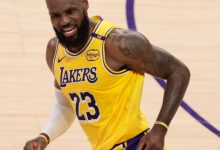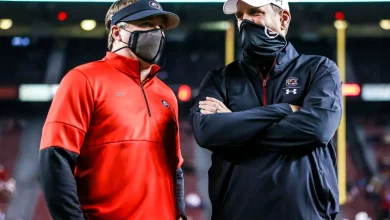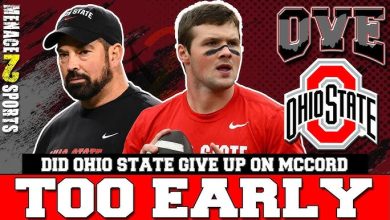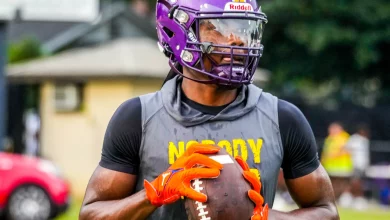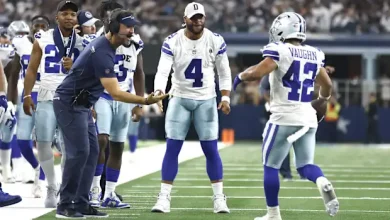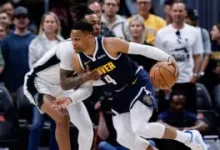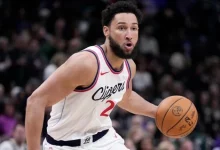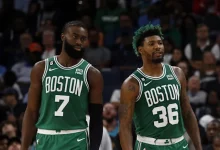Kobe Bryant, legendary Los Angeles Lakers star, left an indelible mark on the NBA with his skill, leadership, and championships.
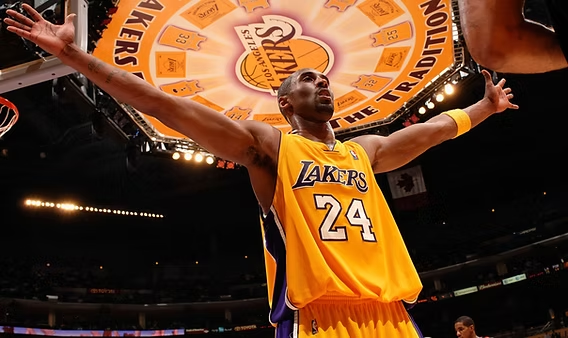
Kobe Bryant, one of the greatest basketball players of all time, left an indelible mark on the NBA and the sports world in general. Over his 20-year career with the Los Angeles Lakers, Bryant not only cemented his place in basketball history but also became a global icon. His legacy is not just built on his remarkable skill and success on the court but also on his mentality, work ethic, and influence on the game. In this article, we explore the many facets of Kobe Bryant’s career, from his early days with the Lakers to his incredible achievements, his impact on the game, and his lasting influence on future generations of athletes.
Early Years and Arrival in Los Angeles
Kobe Bryant’s basketball journey began at a very young age. Born on August 23, 1978, in Philadelphia, Pennsylvania, Bryant was surrounded by basketball from the moment he was born. His father, Joe “Jellybean” Bryant, was a professional basketball player who played in the NBA and overseas. Kobe spent much of his childhood in Italy, where his father played professionally. His time in Europe not only gave him a unique perspective on the game but also helped him develop his skills in an international setting.
Kobe’s basketball talent was undeniable even in his youth. By the time he was a teenager, he was already one of the most promising young players in the country. After high school, he made the bold decision to bypass college basketball and enter the NBA draft, a decision that was uncommon at the time but set the stage for a groundbreaking career. Bryant was selected 13th overall by the Charlotte Hornets in the 1996 NBA Draft but was quickly traded to the Los Angeles Lakers, a move that would change the course of both the Lakers’ and his career.
Bryant’s early years with the Lakers were a learning experience. He joined a team that already had established stars like Shaquille O’Neal, and while Kobe’s talent was evident, he was still finding his place in the league. The 1996-97 season saw him flash moments of brilliance but also experience the struggles of a teenager trying to prove himself in a league full of grown men. However, it wasn’t long before Bryant’s talent began to shine. His work ethic and dedication to improvement quickly became apparent, and as the seasons progressed, he emerged as one of the league’s brightest young stars.
The Shaq-Kobe Dynasty and Three Consecutive Championships
The turn of the millennium marked the beginning of one of the most dominant dynasties in NBA history. In 1999, after years of building, the Lakers acquired superstar center Shaquille O’Neal, who would become Bryant’s primary teammate for the next several years. Together, Shaq and Kobe formed a formidable duo that led the Lakers to three consecutive NBA championships from 2000 to 2002. These championships marked the beginning of Bryant’s legacy as a winner and solidified his place in NBA lore.
While Shaquille O’Neal was the dominant force in the paint, it was Kobe’s skill, agility, and scoring ability that made the Lakers nearly unstoppable. Bryant’s talent was multi-dimensional — he could shoot from anywhere on the court, drive to the basket with precision, and, most notably, play outstanding defense. His competitive fire, often likened to that of Michael Jordan, drove the Lakers forward, and he became the engine that fueled the team’s success.
However, it wasn’t always smooth sailing between Bryant and O’Neal. As the years went on, tensions grew between the two stars, particularly over leadership and the direction of the team. Despite these disagreements, they were able to put their differences aside and continue to win championships. The trio of Shaq, Kobe, and coach Phil Jackson was a perfect combination for success, and their dominance in the early 2000s will forever be remembered as one of the most powerful eras in basketball history.
Kobe Bryant’s Individual Greatness
As the Lakers’ dynasty began to fade, Kobe Bryant’s individual greatness continued to grow. He was no longer just a sidekick to Shaquille O’Neal; he had become the undisputed leader of the team. In 2006, Bryant achieved one of the most remarkable feats in NBA history when he scored 81 points in a game against the Toronto Raptors. This performance is widely regarded as one of the greatest individual achievements in NBA history and showcased Bryant’s offensive prowess.
Bryant’s skill set was diverse and unmatched. He was a scoring machine, able to dominate any type of defense. His footwork in the post was unparalleled, and his ability to hit clutch shots, especially in the final moments of games, was legendary. Bryant was known for his killer instinct, often taking control of games in the fourth quarter and leading the Lakers to victory. He had a vast arsenal of moves, including his signature fadeaway jumper, which was nearly impossible to defend.
Offensively, Kobe had few peers, but he was also known for his tenacious defense. He was a nine-time NBA All-Defensive Team selection and was regularly tasked with guarding the league’s best players. His defensive ability, combined with his offensive skills, made him one of the most complete players the league had ever seen.
In 2008, Bryant won his first MVP award, an acknowledgment of his dominance on the court and the high level of play he was consistently able to maintain. That same year, the Lakers returned to the NBA Finals but fell short to the Boston Celtics in a seven-game series that remains one of the most storied Finals in NBA history. Despite the defeat, it was clear that Kobe was at the peak of his powers and was capable of leading the Lakers back to the championship.
The Second Three-Peat and Redemption
The Lakers’ quest for redemption began in 2009 when they once again found themselves in the NBA Finals, this time facing the Orlando Magic. Bryant was at his best, and the Lakers triumphed in five games to win their 15th NBA championship. Bryant was named Finals MVP, and it was clear that he was no longer just a player in a tandem with Shaquille O’Neal but the undisputed leader of the team.
In 2010, Bryant and the Lakers returned to the Finals to face their bitter rivals, the Boston Celtics, in a rematch of the 2008 Finals. This time, Bryant was determined to get his revenge, and the series was a grueling, hard-fought battle. After a tough seven-game series, the Lakers came out on top, clinching their 16th championship and giving Kobe Bryant his fifth NBA title. Once again, Bryant was named Finals MVP, cementing his legacy as one of the greatest players in NBA history.
The second three-peat marked the pinnacle of Kobe’s career, and his ability to lead his team through adversity and pressure showed his greatness. After winning the title in 2010, Bryant continued to play at a high level for several more years, despite injuries that slowed him down.
The Achilles Injury and the Final Chapter
In April 2013, Kobe Bryant suffered one of the most devastating injuries of his career: a torn Achilles tendon. The injury was a significant blow to his career, as it occurred at a time when he was still playing at an elite level. Despite the severity of the injury, Bryant’s determination to return to the court was unwavering. He underwent surgery and worked tirelessly to recover, and he made a miraculous return to the court just eight months later.
However, Bryant’s body had begun to show signs of wear, and injuries continued to pile up. In his final seasons, he played through significant pain but continued to put on a show for his fans. In his final game in 2016, Bryant put on a performance for the ages, scoring 60 points against the Utah Jazz in a game that felt like a fitting farewell to a career full of unforgettable moments. The Staples Center crowd erupted as Kobe drained shot after shot, sealing his final victory in front of a raucous home crowd.
Legacy Beyond Basketball
Kobe Bryant’s impact on the game of basketball transcended his on-court achievements. He became a global ambassador for the sport, inspiring millions of young athletes worldwide. His “Mamba Mentality,” a philosophy of relentless hard work, resilience, and perseverance, became a mantra for not only basketball players but athletes from all walks of life. Kobe’s influence extended to the next generation of NBA stars, many of whom cite him as a mentor and source of inspiration.
Off the court, Bryant also made significant strides in business and creative ventures. After retiring from basketball, he won an Academy Award for his animated short film, “Dear Basketball,” further demonstrating his creative genius. Bryant’s passion for storytelling and his drive to continue achieving outside of basketball made him a multi-faceted figure whose influence will be felt for generations.

